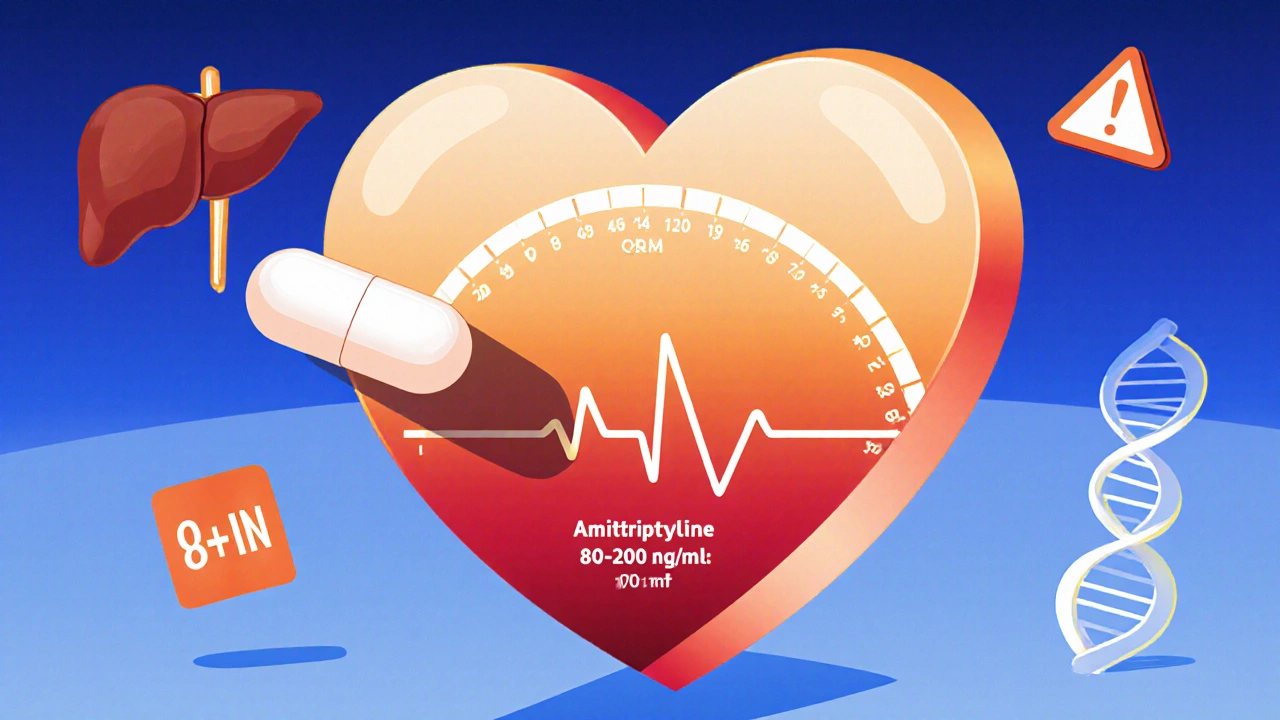Tricyclic Antidepressants: What They Are, How They Work, and What You Need to Know
When doctors talk about tricyclic antidepressants, a class of older prescription medications used to treat depression, chronic pain, and some anxiety disorders. Also known as TCAs, they were among the first drugs developed to target brain chemicals linked to mood—but they come with risks most people don’t realize. Unlike newer antidepressants like SSRIs, tricyclics affect multiple neurotransmitters at once, including serotonin and norepinephrine. That’s why they can help when other drugs fail, but also why side effects like dry mouth, dizziness, and heart rhythm changes are common.
These drugs don’t work the same for everyone. Some people find relief with low doses, while others need higher amounts—only to face more side effects. And mixing them with other meds? That’s where things get dangerous. For example, combining tricyclic antidepressants with SAMe, a supplement sometimes used for mild depression can trigger serotonin syndrome, a rare but life-threatening surge in brain serotonin levels. Symptoms? Agitation, rapid heartbeat, high fever. It’s not something you want to guess your way through.
Tricyclic antidepressants aren’t first-line anymore, but they’re still prescribed—especially for people with depression that doesn’t respond to other treatments, or those dealing with nerve pain, bedwetting, or chronic migraines. The key is knowing your full medication list. If you’re on blood pressure meds, antiarrhythmics, or even over-the-counter cold remedies, you could be at risk. That’s why genetic testing for CYP2D6, a gene that affects how your body breaks down many antidepressants is becoming more common. Some people metabolize these drugs too slowly, leading to toxic buildup. Others clear them too fast, making the drug useless.
There’s no magic fix here. These drugs require careful monitoring. Blood tests, heart checks, and regular check-ins with your doctor aren’t optional—they’re necessary. And if you’ve tried SSRIs and they didn’t help, or if you’ve had side effects from newer meds, tricyclics might still be an option. Just don’t assume they’re safer because they’re older. They’re powerful, and they demand respect.
Below, you’ll find real-world guides on how these drugs interact with supplements, what to watch for when switching meds, and how to spot hidden dangers in your current regimen. No fluff. No hype. Just what you need to know to stay safe and make smarter choices about your mental health treatment.

Therapeutic Drug Monitoring for Tricyclic Antidepressants: How to Prevent Toxicity and Save Lives
- by Colin Edward Egan
- on 18 Nov 2025
Therapeutic drug monitoring for tricyclic antidepressants prevents life-threatening toxicity by measuring blood levels to ensure safe dosing. Learn why TDM is essential for amitriptyline, nortriptyline, and other TCAs.
